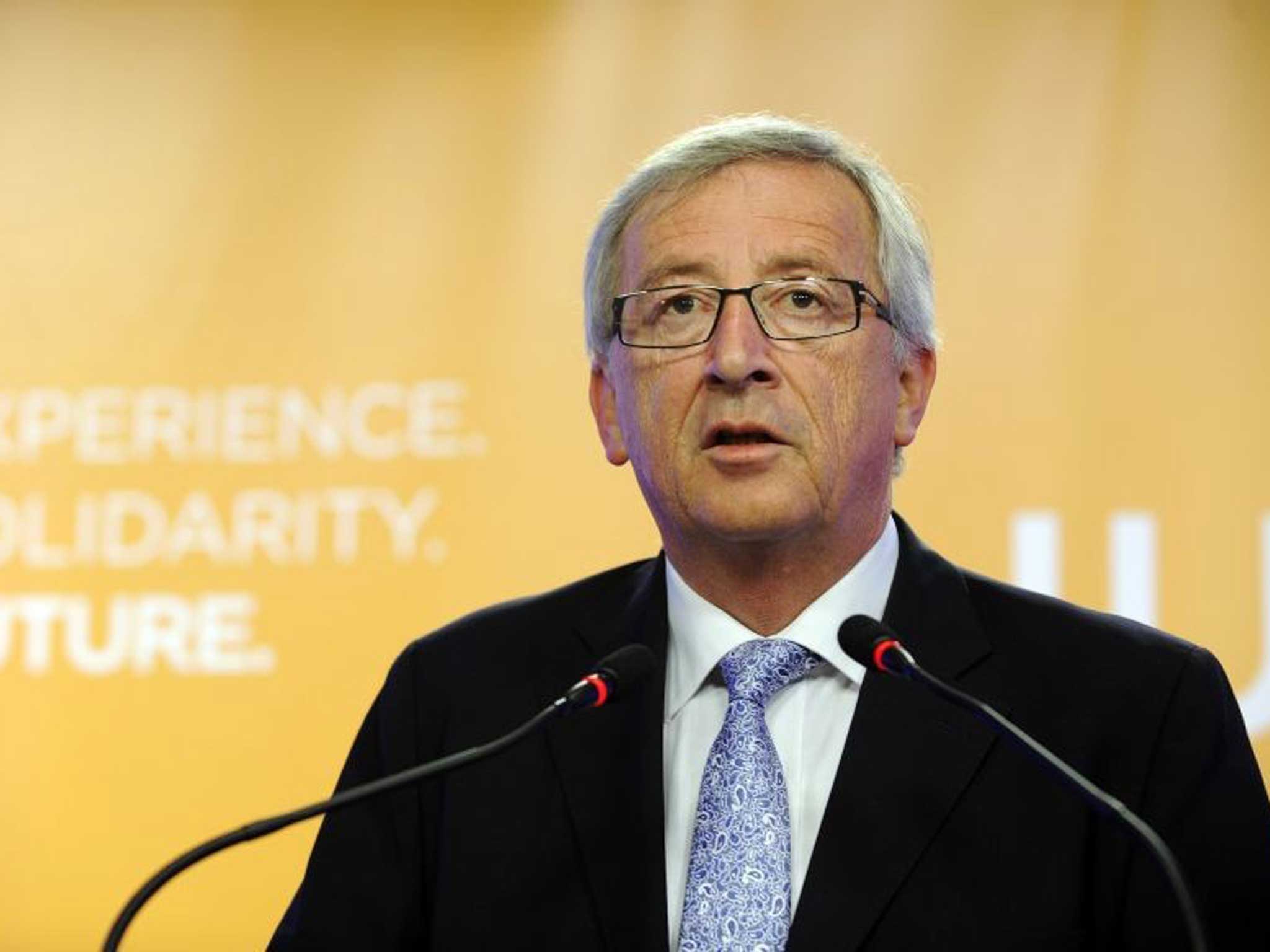David Cameron fears Juncker ‘stitch-up’ in Brussels over European Commission presidency

Your support helps us to tell the story
From reproductive rights to climate change to Big Tech, The Independent is on the ground when the story is developing. Whether it's investigating the financials of Elon Musk's pro-Trump PAC or producing our latest documentary, 'The A Word', which shines a light on the American women fighting for reproductive rights, we know how important it is to parse out the facts from the messaging.
At such a critical moment in US history, we need reporters on the ground. Your donation allows us to keep sending journalists to speak to both sides of the story.
The Independent is trusted by Americans across the entire political spectrum. And unlike many other quality news outlets, we choose not to lock Americans out of our reporting and analysis with paywalls. We believe quality journalism should be available to everyone, paid for by those who can afford it.
Your support makes all the difference.David Cameron warned last night that the appointment of Jean-Claude Juncker to the top job in Brussels would be a “stitch-up” and the “complete opposite” of democracy.
At a meeting in Sweden, Mr Cameron appealed to three centre-right leaders including Germany’s Angela Merkel to block the veteran former Prime Minister of Luxembourg’s bid to land the job of European Commission president.
He is the lead candidate of the mainstream centre-right European People’s Party (EPP), the largest group in the European Parliament after last month’s elections.
But Mr Cameron told a working dinner that Mr Juncker did not have a democratic mandate and that leaders from EU nations should not accept a “backdoor power-shift” to the Strasbourg parliament that would set a “dangerous precedent for the future.”
Mr Cameron urged the other leaders, who also included Sweden’s Frederik Reinfeld and Mark Rutte, the Dutch Prime Minister, to “stand up and be counted.”
He said the EU’s Lisbon Treaty did not mean the 28 leaders had to automatically nominate someone named in advance by a political group. He pointed out that the EPP lost seats in last month’s elections and now had less than a third of the seats in the Parliament.
A Downing Street source said: “This is not what Europe’s voters want….Elected national leaders should not accept rules being broken on the pretext of democracy. It is the complete opposite – a stitch-up dressed up as an election.”
Mr Cameron believes that Mr Juncker, who supports greater EU integration, would not champion the reforms the EU needs. He also fears Mr Juncker would not be inclined to give Britain the “new deal” he seeks.
The Prime Minister’s high profile campaign against the front-runner for the Brussels post has caused tension between him and Ms Merkel, who is under pressure in Germany to back Mr Juncker.
Mr Cameron received a double boost ahead of last night’s talks. Mr Reinfeld, who is hosting the summit at his summer retreat in Harpsund, said other candidates for the Commission job should be considered.
“It is an important principle to see a balance between the institutions,” he said as he arrived for the meeting. “It is of the utmost interest and importance to the rest of Europe that Britain stays in the EU.”
And Labour announced it is opposing Mr Juncker’s candidacy.
A Labour spokesman said: “The nominee for European Commission president is ultimately a decision for the European Council [the 28 leaders], including David Cameron. Labour will not support Jean-Claude Juncker as a candidate for president of the European Commission. Should Mr Juncker be put before the European Parliament, Labour MEPs would vote against him.
The message from the European elections was clear - that we need reform in Europe. We need reform so we can promote jobs and growth. Mr Juncker's record shows he would make these reforms more difficult."
The move reflects Labour’s desire not to be painted as “anti-reform” on Europe after Ukip topped the poll in last month’s elections.
The four centre-right leaders discussed a further clampdown on benefit claims by migrants who move from one EU country to another. They will also debate the crisis in the Ukraine, the economy and trade, before giving a joint press conference at the close of their talks Tuesday
Join our commenting forum
Join thought-provoking conversations, follow other Independent readers and see their replies
Comments